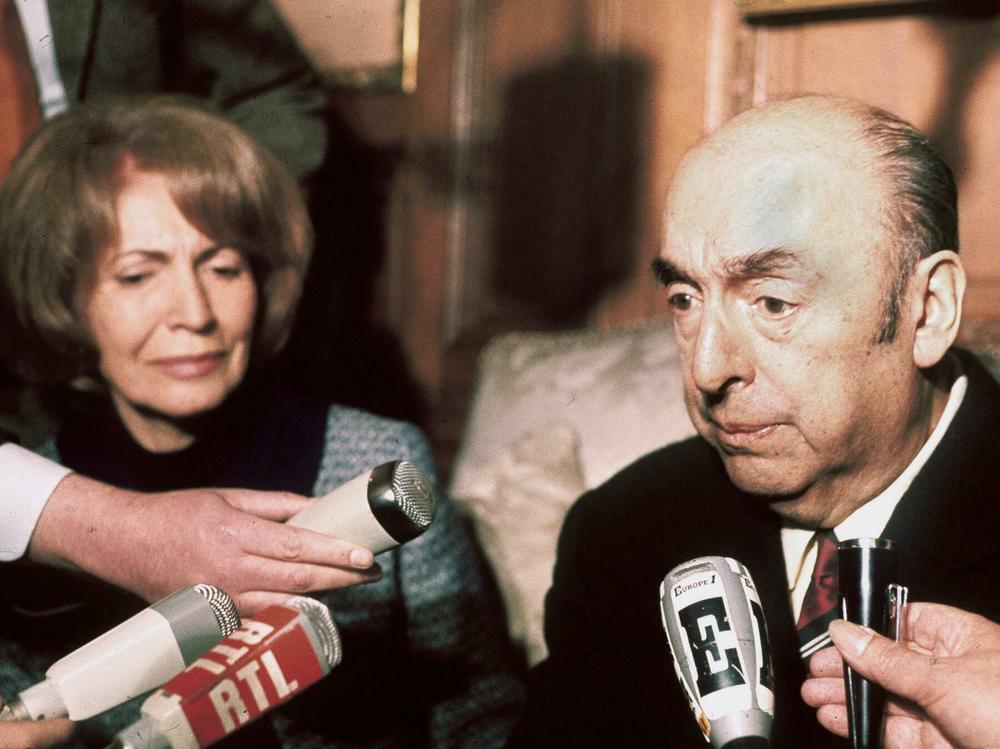Section Branding
Header Content
Famous poet Pablo Neruda was poisoned after a coup, according to a new report
Primary Content
International forensic experts delivered a report to justice officials in Chile today regarding the death of the South American country's famous poet Pablo Neruda — some 50 years ago. A nephew of Neruda tells NPR that scientists found high levels of poison in the poet's remains.
Scientists from Canada, Denmark and Chile examined bone and tooth samples from Neruda's exhumed body. Neruda died in 1973, just days after the U.S.-backed coup that deposed his friend President Salvador Allende.
Rodolfo Reyes — a nephew of the Nobel Prize winning poet who has seen the report — says scientists found high levels of the bacterium that can cause botulism poisoning. He says that proves what he has said for 50 years — that his uncle was injected with the poison at a hospital immediately after the coup.
Scientists from Canada's McMaster University say they couldn't conclude if the bacterium killed Neruda, but did note political prisoners in Chile were poisoned with the same toxin in the 1980s.
Chilean Judge Paola Plaza said the scientist's report was delivered Wednesday to the court investigating Neruda's case. "I haven't read it yet, it is very long and it is impossible for me to have read it yet," she told reporters in Santiago. It is now in what she said is the study phase, but declined to give a timeline for next steps in the case.
Relatives of Neruda are hoping to open a criminal investigation into his death. Neruda was in a hospital following the 1973 coup but had told his driver at the time that he wanted to go into exile in Mexico and to pack his bags and come take him to the airport. From Mexico, he planned to lead opposition to Augusto Pinochet Ugarte, the leader of the military junta that took over Chile. Neruda was dead five hours later.
Neruda's nephew told NPR that there is no doubt now that Neruda was killed for his political activity. "Pablo Neruda has now told us what happened through science, " he added.
Copyright 2023 NPR. To see more, visit https://www.npr.org.

